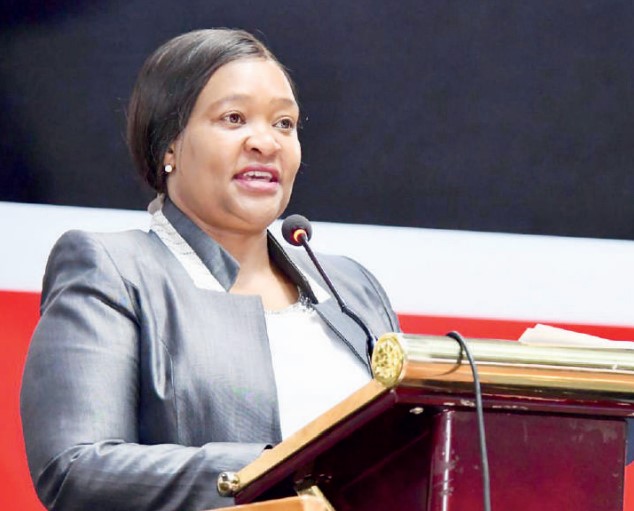

Tourism CS Rebecca Miano has directed key state agencies to work together to streamline the wildlife research permitting process.
She urged the boards and management of Wildlife Research and Training Institute and Kenya Wildlife Service to cross-facilitate each other in research permitting processes.
“The ministry will fast-track the review of the Wildlife Conservation and Management Act so that regulations on the conduct of wildlife research in the country are streamlined,” Miano said.
The CS spoke on Wednesday when she presided over WRTI’s 22nd graduation ceremony.
WRTI board chairman David Nkedianye, Wildlife PS Silvia Museiya and WRTI CEO Patrick Omondi attended the ceremony.
On the just-concluded national wildlife census, Miano said the drive seeks to determine the wildlife population, distribution, changing trends and to identify threats in various ecosystems.
“The data and information obtained will inform the formulation of more effective wildlife conservation strategies across Kenya’s landscapes. I call upon our partners to support the census until it is fully and meticulously wound up,” she said.
The last national wildlife census was conducted in 2021. The 2021 census covered 343,380km2 of Kenya’s landmass at a cost of Sh250 million.
It showed the country has 36,280 elephants, 897 black rhinos, 842 white rhinos, two northern rhinos, 2,589 lions, 5,189 hyenas, 1,160 cheetahs, 865 wild dogs and 41,659 buffaloes.
Omondi said the institute is compliant with the statutory and regulatory requirements set by the government in the fulfilment of its research and training mandate.
The institute is registered as a Technical and Vocational Education and Training institution by the Technical and Vocational Education and Training Authority.
Recently the institute received registration from the National Commission for Science Technology and Innovation as a national research institution.
Nkedianye said his board has supported and enhanced the training programmes that form the backbone of WRTI.
“We recognise that a strong and well-rounded curriculum is essential to producing professionals equipped to tackle the dynamic challenges of wildlife conservation.” Nkedianye said the Institute is undertaking a comprehensive review of their current curriculum.
“This review aims to ensure that our programmes remain relevant, forward-looking and aligned with global best practices. We are engaging with stakeholders from academia and conservation,” he said.







![[PHOTOS] Ruto opens Renewable Energy Lab at PC Kinyanjui](/_next/image?url=https%3A%2F%2Fcdn.radioafrica.digital%2Fimage%2F2025%2F03%2F98ded978-1dd9-4227-8875-a066b471f58b.jpg&w=3840&q=75)



